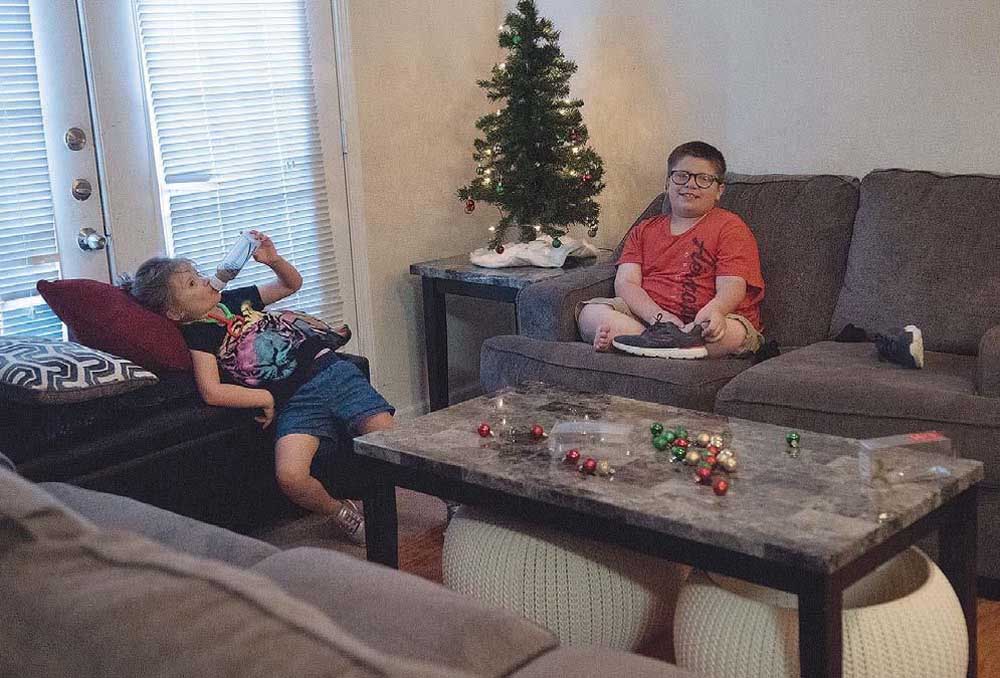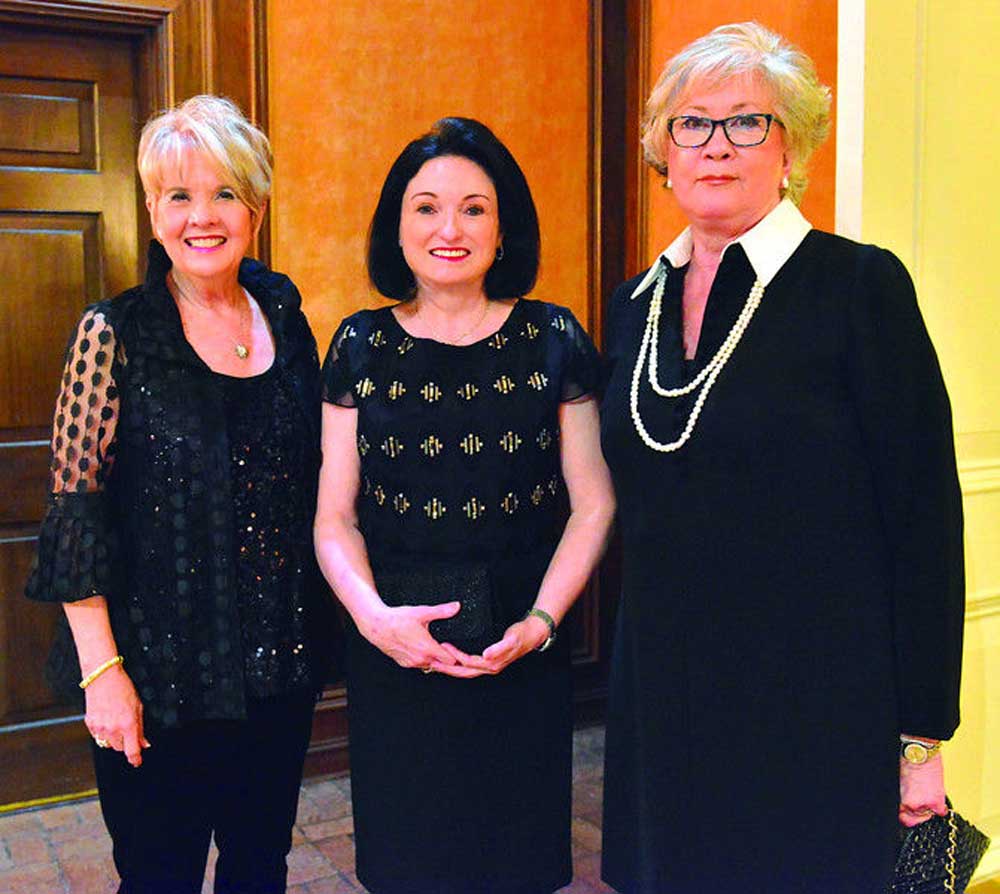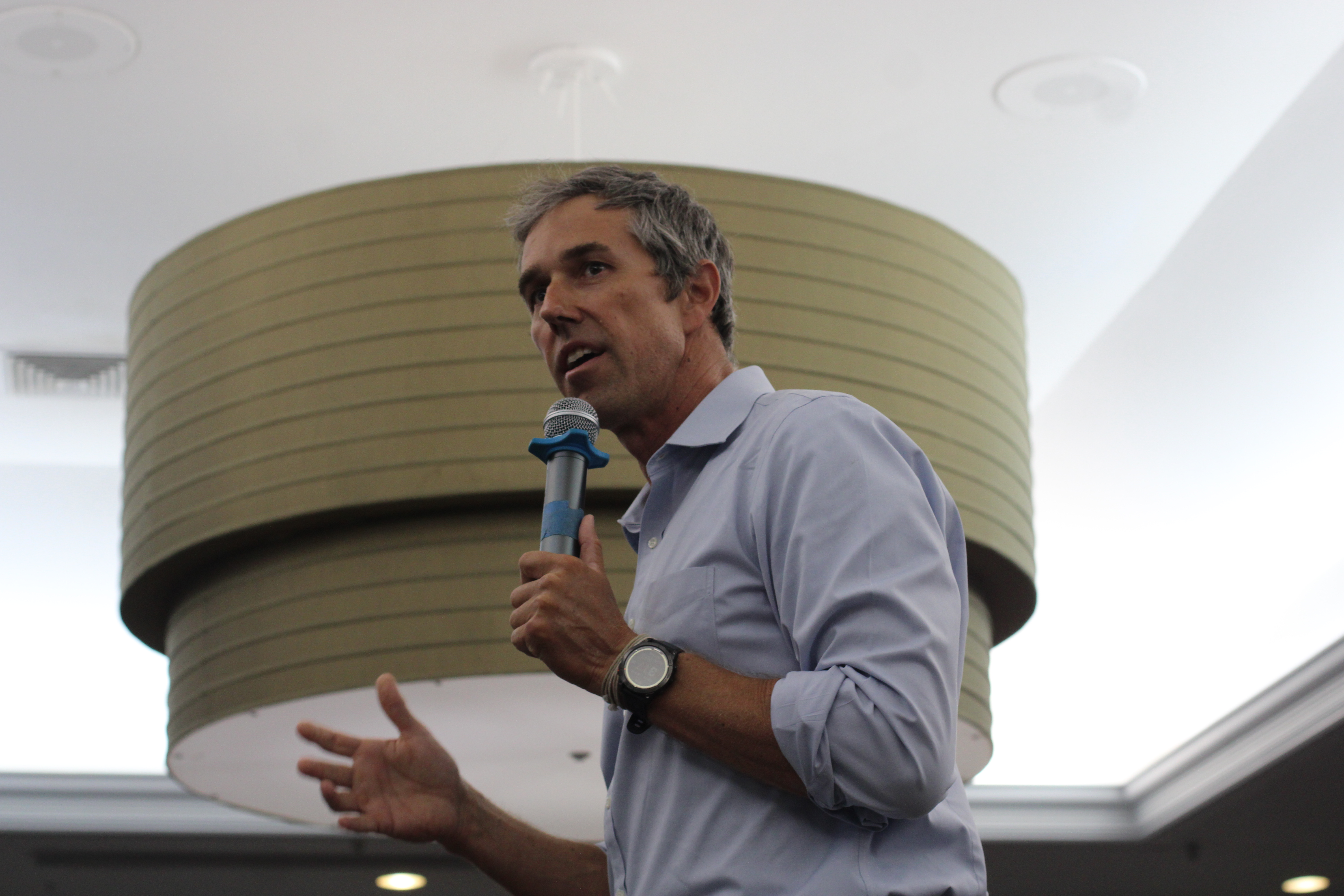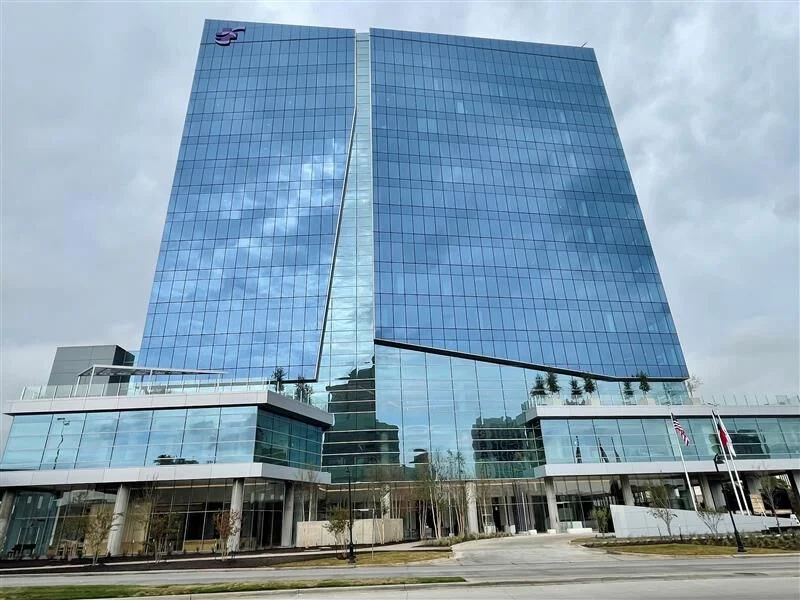A QUEST FOR ROSIE
Published 2:31 am Wednesday, January 3, 2018

- ROSIE WILT, 5, AND HER BROTHER AIDEN, 7, play in their living room after school recently. Rosie has a rare mutation of the USP7 gene. She is one of 24 known people in the world with the mutation. Aiden has autism.
GENETIC MUTATION I AUTISM SPECTRUM
Five-year-old Rosie Wilt of Tyler is one f 26 known people in the world with a are genetic mutation of the USP7 gene.
Rosie lives on the Autism spectrum, is nonverbal, and has developmental and behavioral issues and strabismus (the medical term for any eye misalignment). She eats only baby food.
Wanting to know more about her daughter’s condition, Rosie’s mother, Miranda Wilt, took her to Dallas Children’s Health for genetic testing.
That was when the family first learned Rosie has a mutation of the USP7 gene on
chromosome 16. At her time of diagnosis she was one of only 23 known patients with the same condition, and she is still the only known patient in Texas.
Ms. Wilt is now raising money to fund a phenotyping study for her daughter at the Baylor College of Medicine in Houston in July. A phenotype describes a person’s physical characteristics, personality traits, etc., and is influenced by their genetic identity and their circumstances.
“The doctors always give you the umbrella statement that they have autism,” Ms. Wilt said. “Not a lot of people go to a geneticist, get the blood draw, to figure out what it technically is.”
The small group of families of the patients with the USP7 mutation are a tight-knit community. They plan meetups, conferences and regularly communicate online through private Facebook groups and the Foundation for USP7-Related Diseases website.
The parents know the power of social media to spread information and awareness about the USP7 disease.
When Foundation for USP7-Related Diseases co-founder Bo Bigelow couldn’t find medical answers for his daughter Tess, he took to the internet to answer their questions and wound up connected with researchers at Baylor College of Medicine.
These parents of children with severe special needs are hoping that pushing for more publicity and awareness of the rare condition will lead to finding a cure. They aim to find more people out there with the same symptoms as their children. The more patients they find, the more the mutation can be studied, and the greater the chance that a cure can be found.
“The study will define our disease by allowing Baylor scientists to do in-depth examinations of U.S. patients, including a battery of tests,” Bigelow said. “We need $150K to fund the study. We’re about halfway there. Once we have the study, we’ll be in a much better position to figure out how to cure this.”
Fifteen of the 26 known patients plan to take part in the study.
People who are born with this genetic mutation have a neuro-developmental disorder, according to the Baylor College of Medicine website.
The disorder shows itself in a variety of ways unique to each person. Characteristics include: developmental delay/intellectual disability, autism spectrum disorder, increased prevalence of epilepsy, abnormal brain MRIs, and speech/motor impairments.
People with it also can have low muscle tone as babies, feeding problems, deformed or rigid joints, little to no production of sex hormones, eye problems, short stature and difficulty gaining weight.
Many patients also experience gastrointestinal issues, such as reflux/GERD, chronic constipation or chronic diarrhea, according to the Baylor website.
Rosie and several of the other children with the genetic mutation are featured on the Foundation for USP7-Related Diseases website. As a nonprofit, the foundation is dedicated to finding a cure for the USP7-related diseases by funding research and identifying more patients.
Rosie is Ms. Wilt’s second child with special needs. Her son, Aiden, 5, lives with autism. The single mom has her hands full, but she remains hopeful for the future of her children.
“As more and more newspapers and television stations cover USP7 we find more patients,” Wilt said.
TWITTER: @TMT_Sarah
CLOSER LOOK
Rosie will be one of 15 candidates in an upcoming phenotyping study of USP7 patients and their traits.
The study will be conducted by the Schaaf Lab at the Jan and Dan Duncan Neurological Research Institute of Texas Children’s Hospital in Houston.
The estimated cost for each USP7 patient is $11,000-12,000. The USP7 Foundation is raising money for the study.
Donations can be made at the USP7 website, USP7.org. Donations directly to Rosie can be made at Tyler area Chase Bank locations under the name Miranda Wilt.
A conference for USP7 will be held in October 2018 in Las Vegas in conjunction with the conference for Prader-Willi Syndrome, which is closely linked to the disease, and another disease called Schaaf- Yang Syndrome. The three patient groups will meet and collaborate to cure all three diseases.







